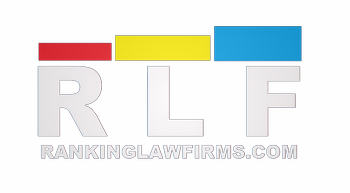Last Updated on March 25, 2024 by Ranking
Beginning January 1, 2024, a significant change in reporting requirements will impact most small entities, including single member LLCs. The Corporate Transparency Act (CTA), part of the Anti-Money Laundering Act of 2020, mandates that these entities file online reports with the federal government, disclosing information about their beneficial owners. This new reporting requirement is estimated to affect at least 32.6 million entities in 2024.
Background
The CTA was enacted to combat money laundering, corrupt financial transactions, and financial terrorism. It aims to shed light on criminals who evade taxes, hide illicit wealth, defraud employees and customers, and misuse shell companies. The Financial Crimes Enforcement Network (FinCEN), a bureau of the U.S. Treasury, is responsible for establishing and maintaining a national registry of beneficial owners of entities that are otherwise not subject to disclosure regulations.
Who Must File a Report?
The reporting requirement applies to two types of companies: domestic and foreign reporting companies. Domestic reporting companies include corporations, LLCs, and other entities created or registered under state or tribal law. This encompasses limited liability partnerships, limited liability limited partnerships, business trusts, and most limited partnerships. Single-member LLCs, disregarded for tax purposes, are also subject to BOI reporting.
Foreign reporting companies are those formed under foreign law but registered to do business in any state or tribal jurisdiction.
Exceptions to Reporting
While many entities are subject to the reporting requirement, certain exceptions exist. These exceptions include:
- Certain types of securities reporting issuers.
- S. governmental authorities.
- Certain types of banks and credit unions.
- Certain types of money services businesses.
- Certain types of broker-dealers, securities exchanges, and clearing agencies.
- Certain types of regulated public utilities.
- Certain types of investment companies and advisers.
- Certain types of insurance companies and producers.
- Certain types of public accounting firms.
- Certain types of financial market utilities.
- Certain pooled investment vehicles.
- Certain types of tax-exempt entities.
- Large operating companies meeting specific criteria.
- Inactive entities existing before January 1, 2020.
It is crucial for businesses to review the specific criteria for exemptions before determining their applicability.
What Must Be Reported?
Reporting companies must disclose various pieces of information. This includes their full legal name, any trade name or DBA, complete address, the jurisdiction in which they were formed or registered, and their Taxpayer Identification Number (TIN). For domestic entities, the TIN is the IRS TIN, while foreign entities without a TIN should provide a tax identification number issued by a foreign jurisdiction.
Additionally, reporting companies must provide the full legal name, birthdate, complete address, and an identifying number from a non-expired driver’s license, passport, or other approved document for each beneficial owner and company applicant.
Beneficial Owners
Beneficial owners are individuals who directly or indirectly exercise “substantial control” over the reporting company or own or control 25% or more of the ownership interests. Substantial control refers to individuals who direct, determine, or have substantial influence over important decisions of the reporting company. This includes senior officers, individuals with authority over appointment or removal of senior officers or the board of directors, and those who influence decisions related to the business, finances, contracts, governance, and more.
Ownership interests encompass various forms of equity, stock, voting rights, capital or profit interests, convertible instruments, options, and any other mechanism establishing ownership.
Company Applicants
Reporting companies created or registered on or after January 1, 2024, must report the company applicants, in addition to beneficial owners. Company applicants include the individuals directly responsible for creating or registering the reporting company and those primarily responsible for directing or controlling the filing of relevant documents. Companies created or registered before January 1, 2024, are only required to report beneficial owners.
FinCEN Identifier
Reporting companies and individuals can obtain a FinCEN identifier, which is specific to the entity or individual. This identifier can be used in subsequent reports to avoid reporting all the required information again.
Reporting Deadlines
Reporting companies created or registered before January 1, 2024, must file their first BOI report no later than January 1, 2025. Companies created or registered between January 1, 2024, and January 1, 2025, must file their initial report within 90 calendar days of receiving notice from the state’s secretary of state or similar office. Companies created or registered on January 1, 2025, or later must file their initial reports within 30 days.
Once the first report is filed, reporting companies must update the information within 30 days of any changes or inaccuracies. If a reporting company no longer qualifies for an exemption, it must file a report within 30 days of no longer meeting the exemption criteria.
Filing Process
All BOI reports must be filed electronically with FinCEN. The filing process will be available starting January 1, 2024.
Penalties for Noncompliance
Providing false or fraudulent BOI or failing to report complete or updated information to FinCEN is deemed unlawful. Penalties include fines of up to $500 for each day of violation or failure, up to a maximum of $10,000, and potential imprisonment for up to two years. Safe harbor provisions apply if a reporting company discovers inaccuracies and files corrected reports within 90 days of the initial report.
Conclusion
The new reporting requirements for small entities regarding beneficial ownership information aim to combat money laundering and other financial crimes. It is essential for businesses to understand their obligations, review exemptions, and comply with the reporting deadlines. Seeking guidance from legal and tax professionals will ensure adherence to the new regulations while avoiding potential penalties.
Disclaimer: This article is for informational purposes only and does not constitute legal or tax advice. Consult professionals for specific guidance and compliance.




